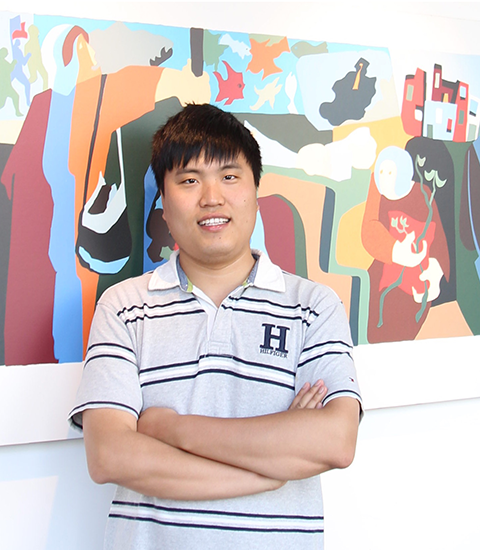Allen School research professor Yuliang Wang received the Jaconnette L. Tietze Young Scientist Award from the John H. Tietze Foundation Trust for his work on novel approaches for identifying and restoring intercellular communication in diseases affecting complex tissues such as the heart, kidney, and brain. The award is administered by the University of Washington’s Institute for Stem Cell & Regenerative Medicine (ISCRM), where Wang is a core faculty member, to recognize and support junior faculty conducting stand-out research related to stem or progenitor cell biology or therapies.
Wang’s research focuses at the intersection of computation and biology, integrating multi-omic data (transcriptomics, epigenomics, metabolomics) and network modeling to understand how the metabolic and signaling network states influence stem cell differentiation and tissue development. For his latest project, Wang is exploring new and efficient techniques for capturing intercellular “whispers” — the complex communication between diverse cell types that enable the proper function of organs such as the heart and kidneys — to understand how they are affected by diseases. The project combines concepts from information theory, such as KL divergence, and single cell transcriptomics, which measures gene expression for thousands of genes found in individual cells across 10,000 or more cells simultaneously.
Single cell transcriptomics enables researchers to identify novel cell types and marker genes as well as uncover the developmental trajectories of individual cell types. Wang is interested in going beyond the analysis of individual cell types to uncover the ligand-receptor interactions that connect different cell types. To that end, he and his team introduced talklr, short for “intercellular crossTALK mediated by Ligand-Receptors.” Talklr identifies and prioritizes ligand-receptor pairings that display distinct expression patterns across interacting cell types, and then infers whether their transcriptional targets are activated. By applying KL divergence, talklr simultaneously considers the expression distributions of both the ligand and receptor genes across all interacting cell types and conditions. This approach enables talklr to capture one-to-many and many-to-many cell type interactions that previous computational methods may miss. It also allows talklr to factor in the context-dependence of gene expression changes in one cell type associated with expression levels in another cell type when determining whether such changes are biologically significant.
Wang aims to make talklr widely accessible to researchers without programming experience and to enable easy integration into existing lab workflows. He hopes one outcome of this work will be new targeted pharmacological interventions for restoring essential intercellular communication where normal cell function has been disrupted through disease.
”By applying advanced computational methods like talklr to single cell gene expression analysis, we will gain new insights into how interactions between different cell types affect disease and developmental processes,” explained Wang. “If we can better understand the impact of these intercellular communications on complex tissue structures, that knowledge could potentially lead to new therapeutics for helping to restore proper organ function in patients.”
Wang joined the UW faculty in 2016 after spending two years as a senior research associate in the Computational Biology program at Oregon Health & Science University. Before that, he completed a postdoc at Sage Bionetworks in Seattle. Wang earned his Ph.D. in Chemical and Biomolecular Engineering and a master’s in Applied Statistics from the University of Illinois at Urbana-Champaign in 2013.
Read the ISCRM announcement here.
Congratulations, Yuliang!


